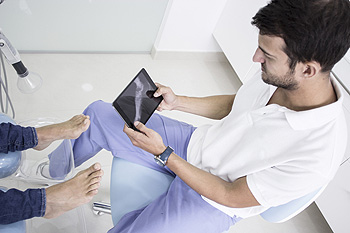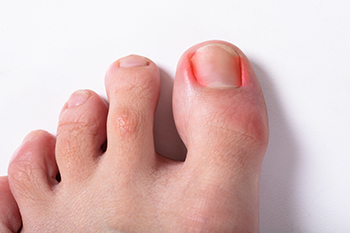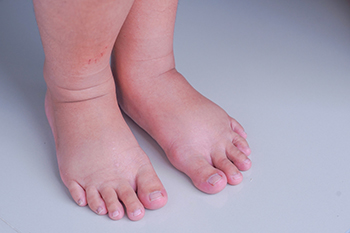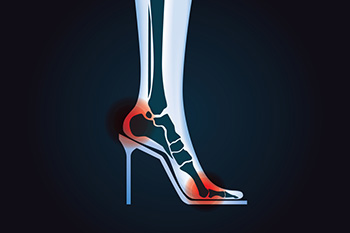October 2022
Podiatrists in the Military

Podiatrists are foot specialists that work in a variety of practice areas. Many podiatrists, after undergoing a rigorous training regimen, will open up their own practice. Others may work on a team or for another organization like the military. Podiatrists in the military play a very important role. Individuals in the military need healthy, vibrant feet to function well and properly perform their duties. When a serviceman or woman is having an issue with the health of their feet, a military podiatrist will help them identify and treat the problem. Military podiatrists can work in hospitals that are located both on land and also on ships, depending on the specific position. If you are interested in learning more about podiatrists, reach out to your local podiatrist today.
If you are experiencing pain in the feet or ankles, don’t join the stubborn majority refusing treatment. Feel free to contact one of our podiatrists from Family Foot Care. Our doctors can provide the care you need to keep you pain-free and on your feet.
What Is a Podiatrist?
Someone would seek the care of a podiatrist if they have suffered a foot injury or have common foot ailments such as heal spurs, bunions, arch problems, deformities, ingrown toenails, corns, foot and ankle problems, etc.
Podiatric Treatment
A podiatrist will treat the problematic areas of the feet, ankle or lower leg by prescribing the following:
- Physical therapy
- Drugs
- Orthotic inserts or soles
- Surgery on lower extremity fractures
A common podiatric procedure a podiatrist will use is a scanner or force plate which will allow the podiatrist to know the designs of orthotics. Patients are then told to follow a series of tasks to complete the treatment. The computer will scan the foot a see which areas show weight distribution and pressure points. The podiatrist will read the analysis and then determine which treatment plans are available.
If you have any questions please feel free to contact our offices located in Valatie and Albany, NY . We offer the newest diagnostic and treatment technologies for all your foot and ankle needs.
Gout Pain Can Be Managed
Babies Can Get Ingrown Toenails

An ingrown toenail generally causes pain and discomfort, and it can be unsettling to a parent if their child develops this foot condition. It occurs as a result of a toenail that grows into the skin, instead of over it. Babies' toenails are soft and curved, and can easily grow into the side of the skin, and if this happens, it will typically become red and swollen. An infected ingrown toenail can produce pus or yellow fluid, and it may cause pain while walking or crawling. Soaking your child’s foot in warm water may bring mild relief, and it may help to gently massage the nail and surrounding area. The chances of getting an ingrown toenail may be reduced when effective prevention methods are practiced. These can include trimming the nails straight across, and avoiding cutting them too short. Additionally, gently pulling the skin away from the nail may be done after a bath, when the nails are soft. If you would like more information about how to protect your child from getting an ingrown toenail, please confer with a podiatrist.
Ingrown toenails may initially present themselves as a minor discomfort, but they may progress into an infection in the skin without proper treatment. For more information about ingrown toenails, contact one of our podiatrists of Family Foot Care. Our doctors can provide the care you need to keep you pain-free and on your feet.
Ingrown Toenails
Ingrown toenails are caused when the corner or side of a toenail grows into the soft flesh surrounding it. They often result in redness, swelling, pain, and in some cases, infection. This condition typically affects the big toe and may recur if it is not treated properly.
Causes
- Improper toenail trimming
- Genetics
- Improper shoe fitting
- Injury from pedicures or nail picking
- Abnormal gait
- Poor hygiene
You are more likely to develop an ingrown toenail if you are obese, have diabetes, arthritis, or have any fungal infection in your nails. Additionally, people who have foot or toe deformities are at a higher risk of developing an ingrown toenail.
Symptoms
Some symptoms of ingrown toenails are redness, swelling, and pain. In rare cases, there may be a yellowish drainage coming from the nail.
Treatment
Ignoring an ingrown toenail can have serious complications. Infections of the nail border can progress to a deeper soft-tissue infection, which can then turn into a bone infection. You should always speak with your podiatrist if you suspect you have an ingrown toenail, especially if you have diabetes or poor circulation.
If you have any questions, please feel free to contact our offices located in Valatie and Albany, NY . We offer the newest diagnostic and treatment technologies for all your foot care needs.
Swollen Feet and Diabetes May Be Connected

Swollen feet or edema can often accompany the serious condition known as diabetes. Poor circulation may lead to excess fluid in the legs and feet, causing swelling. Gravity plays a significant role in having swollen feet and improving circulation can help to reduce existing swelling. Patients who are diabetic may have damaged veins as a result of poor circulation and may experience kidney issues from having elevated glucose levels. Additionally, the heart may be affected and can become less efficient at pumping blood. All these factors may lead to swollen feet and may be helped by consuming a diet that is low in sodium. It also may help to drink plenty of water, monitor and control the sugar levels in the blood, and partake in a gentle exercise program. If your feet are swollen, please consult with a podiatrist who can diagnose the cause and offer effective treatment options.
Swollen feet can be a sign of an underlying condition. If you have any concerns, contact one of our podiatrists of Family Foot Care. Our doctors can provide the care you need to keep you pain-free and on your feet.
Swollen feet are a common ailment among pregnant women and people who stand or sit for extended periods. Aging may increase the possibility of swollen feet and patients who are obese often notice when their feet are swelling too. There may be medical reasons why swollen feet occur:
- Phlebitis - A condition that causes the veins to become inflamed and can also cause leg pain.
- Liver disease - This may lead to low blood levels of albumin which is a protein. This can cause fluid in the blood to pass into the tissues and several areas of the body can become swollen.
- Heart failure - When the heart doesn’t pump properly the blood that is normally pumped back to the heart can pool in the veins of the legs causing swollen feet.
- Kidney disease - One of the main functions of the kidneys is releasing excess fluid in the body. This type of condition can make it difficult for the kidneys to function properly, and as a result the feet may become swollen.
- Deep-vein thrombosis (DVT)- This is a serious condition where blood clots form in the veins of the legs. They can block the return of blood from the legs to the heart which may cause the feet to swell. It is important to be treated by a podiatrist if this condition is present.
Swollen feet can also be caused by bone and tendon conditions, including fractures, arthritis, and tendinitis. Additionally, there may be skin and toenail conditions and an infection may cause the feet to swell. Patients who take medicine to treat high blood pressure may be prone to getting swollen feet.
Many patients elevate their feet to help relieve the swelling and this is generally a temporary remedy. When a podiatrist is consulted the reason behind the swelling can be uncovered and subsequently treated.
If you have any questions please feel free to contact our offices located in Valatie and Albany, NY . We offer the newest diagnostic tools and technology to treat your foot and ankle needs.
High Heels Can Affect the Feet and Ankles

Research has shown that the shoes women wear, specifically high heels and sandals, are major contributors to heel and ankle pain. The best way to avoid a future of painful feet is to avoid these types of shoes early in life. Opting instead for sneakers or athletic footwear that provide the proper cushioning and support for the feet, heels and ankles is recommended. With every step you take, a significant amount of force is transmitted to the ankles, heels, and feet. Without the proper support or protection, these areas are put at risk for injury. Improper footwear can also contribute to toe problems, including bunions, calluses, corns, and hammertoes. Choosing comfort over style is suggested as a way to avoid painful problems later in life. Other recommendations are to wear shoes that conform to the shape of your foot, avoid shoes with pointed or tapered toes, and buy shoes that fit well – regardless of the size on the box. For more information on the risks of wearing high heels, or for help with any painful foot and ankle conditions you may have, please visit a podiatrist.
High heels have a history of causing foot and ankle problems. If you have any concerns about your feet or ankles, contact one of our podiatrists from Family Foot Care. Our doctors can provide the care you need to keep you pain-free and on your feet.
Effects of High Heels on the Feet
High heels are popular shoes among women because of their many styles and societal appeal. Despite this, high heels can still cause many health problems if worn too frequently.
Which Parts of My Body Will Be Affected by High Heels?
- Ankle Joints
- Achilles Tendon – May shorten and stiffen with prolonged wear
- Balls of the Feet
- Knees – Heels cause the knees to bend constantly, creating stress on them
- Back – They decrease the spine’s ability to absorb shock, which may lead to back pain. The vertebrae of the lower back may compress.
What Kinds of Foot Problems Can Develop from Wearing High Heels?
- Corns
- Calluses
- Hammertoe
- Bunions
- Morton’s Neuroma
- Plantar Fasciitis
How Can I Still Wear High Heels and Maintain Foot Health?
If you want to wear high heeled shoes, make sure that you are not wearing them every day, as this will help prevent long term physical problems. Try wearing thicker heels as opposed to stilettos to distribute weight more evenly across the feet. Always make sure you are wearing the proper shoes for the right occasion, such as sneakers for exercising. If you walk to work, try carrying your heels with you and changing into them once you arrive at work. Adding inserts to your heels can help cushion your feet and absorb shock. Full foot inserts or metatarsal pads are available.
If you have any questions please feel free to contact our offices located in Valatie and Albany, NY . We offer the newest diagnostic and treatment technologies for all your foot and ankle needs.




